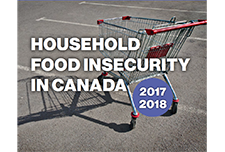Discover financial empowerment resources
Discover financial empowerment resources
Canada’s Black population has grown significantly over the last two decades and now accounts for 4.3% of the Canadian population. This diverse community includes those with deep historical roots, particularly in Atlantic Canada, alongside recent migrants from the Caribbean, Africa and beyond....
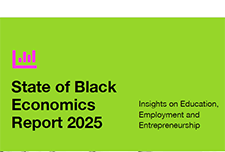
For 20 years the Asset Funders Network has provided a forum for grant makers and financial institutions to connect, collaborate, and collectively invest in helping more people achieve economic security. This report reflects their work over the past year celebrating their innovative research,...
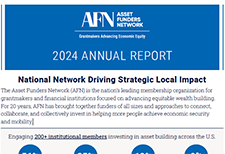
In 2020, racialized individuals were less likely than non-racialized individuals to have income from multiple sources after the age of 65. Among all racialized individuals aged 65 and over, Japanese individuals were most likely to have private retirement income (74%) and investment income...
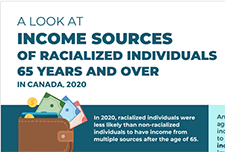
Every day in Canada, nearly 1 in 4 people worry about eating, compromise on the quantity and quality of their groceries and/or go without food due to financial constraints. Food insecurity disproportionately impacts some groups, including Indigenous and racialized peoples, people with...
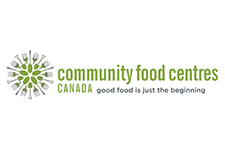
AFN's 2023 Annual Report gives a high level review of their work last year. For 19 years, AFN has provided a forum for grantmakers and financial institutions to connect, collaborate, and collectively invest in helping more people achieve economic security. This report reflects our work over the...
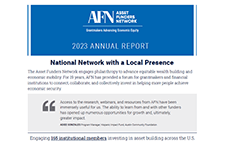
The Government of Canada has put together statistics highlighting sociodemographic diversity, educational attainment, labour market participation and business ownership and income and inequality for Black History...

Centering equity is key to the purpose and mission of any collective impact work, no matter the issue area or focus. It is very difficult to move population or systems change without redressing disparities that exist in almost every community. Part of the challenge is there is not one path to...
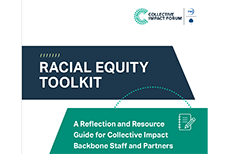
Two articles released in Economic and Social Reports provide insights on the poverty rates and changing demographics of racialized population groups in Canada. The article "Poverty among racialized groups across generations," shows that most racialized groups had higher poverty rates...

Black History Month is an opportunity to highlight the contributions and accomplishments of Black Canadians and their communities. These Statistic Canada findings provide a brief overview of the Black population that continues to grow with each census. The Black population now accounts or 4.3% of...
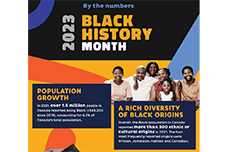
A research collaboration between PROOF (Food Insecurity and Policy Research) and FoodShare reveals that Black households are 3.56 times more likely to be food insecure than white households. Learn more about the relationship between food banks and food insecurity in Canada in this 2019...
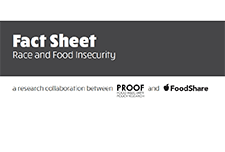
About this resource This backgrounder provides an overview of some of the latest research on poverty and food insecurity in Canada. Current context Nearly five million people in Canada (14% the population) are living below the poverty line. Food insecurity, largely a result of poverty, affects...

Read more about homelessness, affordability, at risk-populations and human rights on the Government of Canada's website. Learn about: Housing and human rights: the Federal Housing Advocate's work on the right to adequate housing, unmet housing needs and systemic homelessness. Canada's...

In 2022, the Consumer Price Index rose 6.8%, the highest increase since 1982 (+10.9%). Prices for day-to-day goods and services such as transportation (+10.6%), food (+8.9%) and shelter (+6.9%) rose the most. Canadians felt the impact of rising prices. Data from the Canadian Social Survey...

This brief lays out how care impacts economic recovery, family economic security and asset building, equity and justice, and the well-being of children, older adults, and people with disabilities. COVID-19 highlighted the importance of caregivers, as parents have become remote learning...
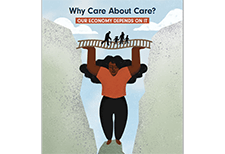
The Asset Funders Network engages philanthropy to advance equitable wealth building and economic mobility. For 18 years, AFN has provided a forum for grantmakers to connect, collaborate, and collectively invest in helping more people achieve economic security. This report reflects their work over...
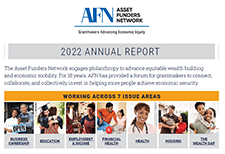
In 2014, a group of non-retired Canadians aged 55 or older was asked about their financial expectations for retirement. New data from 2020 reveal how this same group of Canadians - now retired- is doing...

This study uses the 2022 Portrait of Canadian Society Survey to examine the impact of rising inflation on the lowest income Canadians. Using multiple pre-pandemic data sources, the study takes a closer look at people living in the bottom family income quintile, examining their family income, debt...
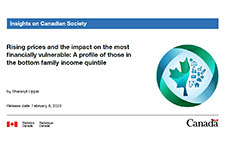
In response to Canada's Anti-Racism Strategy, Statistics Canada's Centre for Gender, Diversity and Inclusion Statistics is releasing a second set of five data tables on social inclusion. Over 20 new indicators, for a total of over 120 indicators, can now be used to examine various...

Social prescribing is a means of connecting people to a range of community services and activities to improve their health and well-being. These services vary based on each person’s needs and interests, and can include food subsidies, transportation, fitness classes, arts and culture engagement,...
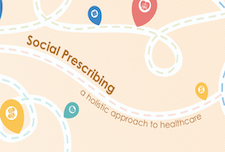
The Canadian Institute for Social Prescribing (CISP) is a new national hub to link people and share practices that connect people to community-based supports and services that can help improve their health and...
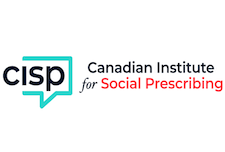
Over the last two years, digital payment solutions, including peer-to-peer apps, digital wallets, and contactless payment solutions, have grown in popularity and adoption. With 125 million American mobile payment users predicted by 2025 Commonwealth sought to understand the potential for these...

Black History Month is an opportunity to highlight the contributions and accomplishments of Black Canadians and their communities. These Statistic Canada findings provide a brief overview of personal education, contributions to the scientific community, proportions in the front line staff, and...
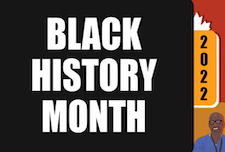
The following snapshot aims to highlight how Anti-Black racism and systemic discrimination are key drivers of health inequalities faced by diverse Black Canadian communities. Evidence of institutional discrimination in key determinants of health is also presented, including education, income, and...

American Indian and Alaska Native (AI/AN) peoples have long faced barriers to asset building. More than half of AI/AN populations are un- or underbanked, financial services often don’t operate on reservations, and access to capital is difficult. Native peoples have been excluded from financial...

Food insecurity – inadequate or uncertain access to food because of financial constraints – is a serious public health problem in Canada, and all indications are that the problem is getting worse. Drawing on data for 103,500 households from Statistics Canada’s Canadian Community Health...
